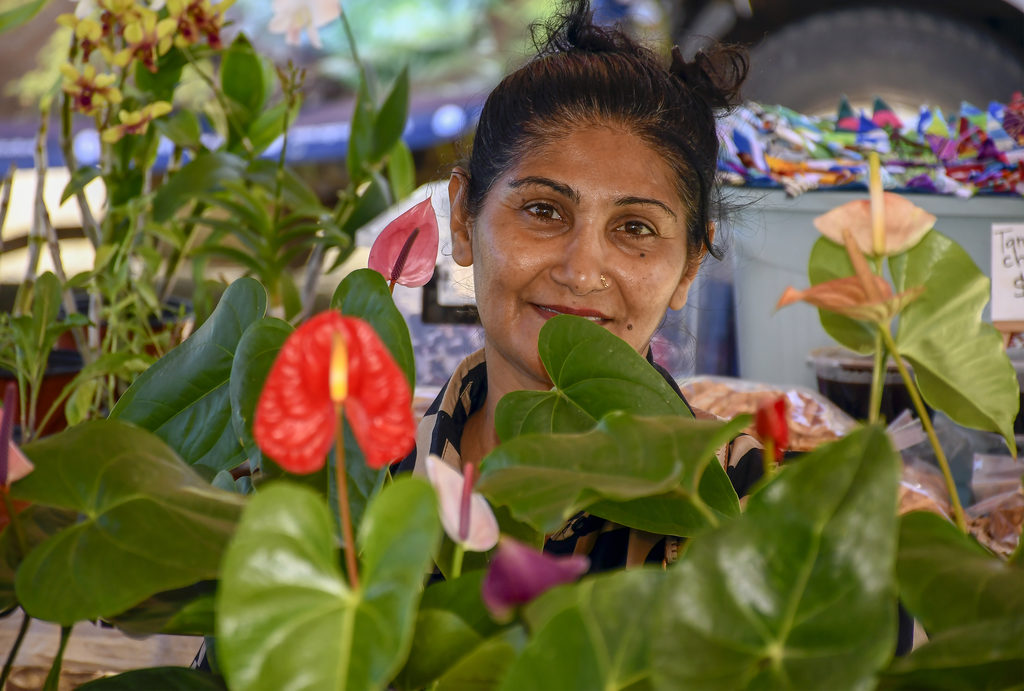AGRICULTURE and tourism work well together as farm-to-table experience can help Fiji grow and be less dependent on imported food.
As tourism thrives as the lifeblood of Fiji’s economy, agriculture can also play a substantial role in providing fresh produce daily to resorts and restaurants.
For this year’s Agriculture Show, the theme “Be Resilient, Produce Smart, Grow Local and Grow Agro-Tourism” strings agriculture and tourism together.
Acting Prime Minister and Minister of Finance, Professor Biman Prasad, in opening the Agriculture Show last week, said the agriculture sector has been a vital source of employment, income and livelihoods for the people of Fiji in rural and maritime areas and is important in ensuring food security, export earnings and economic diversification.
He said Fiji’s tourism industry is experiencing an inspiring resurgence, with visitor numbers exceeding pre-pandemic levels and that remarkable growth presets a powerful opportunity for the agriculture sector, stimulating demand for locally sourced products within tourism.
“Currently, Fiji relies heavily on imported food to cater to its tourism needs, yet there is a vibrant chance to reduce this dependence,” he said.
“By improving the consistency, quality and volume of locally produced goods, we can elevate the incomes of local farmers and strengthen the bonds between our communities and the tourism sector.
“Wouldn’t it be lovely if tourists visiting our shores enjoy local meat and produce? That simple connection between the soil and the plate is at the heart of what we are promoting today — fresh, local produce that sustains livelihoods and strengthens the link between agriculture and tourism.
The International Finance Corporation Report on “From the Farm to the Tourists Table” revealed in 2017 that hotels and resorts in Fiji’s primary tourism regions invested a staggering $74.4million in the procurement of fresh produce.
“Alarming, over half of this expenditure – 52 per cent equating to more $38.5million went towards imported items.
“Fiji possesses a significant opportunity to slash its import bill by $24.1million by strategically developing local production of specific, high-potential fresh produce items.
“A mere 18 fresh produce items account for an impressive 63 percent of the total fresh food imports consumed by hotels in Fiji’s main tourism hubs including Nadi, Lautoka, Denarau, Coral Coast, Mamanuca and Yasawa Islands.
The key items encompass vegetables like potato, coloured capsicum (red, yellow, orange, green), broccoli, lettuce, cauliflower, zucchini, purple and green cabbage.
For fruits — it’s tomatoes, oranges, rock melons and honeydew melons. Meat and seafood — it’s beef, bacon and prawn and dairy — cheese. For juice — it’s packaged tropical juices.
Mr Prasad said by prioritising local production of those essential items, Fiji can significantly enhance its economy and provide fresher options to its thriving tourism sector.
“This is our opportunity to change that – to take pride in what we can grow, to innovate boldly and to make Fiji a leader in sustainable agriculture.
Deputy Prime Minister and Minister for Tourism, Viliame Gavoka while opening the panel discussions at the Agriculture Show said tourism is more than beautiful beaches and smiling welcomes, it is the story of our land.
“The fruits on our tables, the spices in our kitchens, the fresh catch for dinner – all of it begins here, with the farmers and growers who work the soil,” Mr Gavoka said.
“The agriculture sector is the backbone of rural livelihoods, while tourism is the lifeblood of our economy. When these two sectors collaborate, they foster a cycle of resilience, farmers gain stable markets, hotels and resorts access fresh local produce, and visitors enjoy an authentic taste of Fiji.
He said if Fiji was to do it, it needs to do it smartly.
“We live in a world where efficiency and innovation determine success. Producing smart means adopting new technologies, better farming practices and sustainable methods that increase yields while protecting our environment,” he said.
“It also means creating supply chains that connect farms directly with hotels, restaurants and export markets. Our farmers must be supported with knowledge, tools, and market access, while our tourism operators much actively seek and value local produce.
Nearly one million visitors came to Fiji last year and spent billions.
“They want our fruits, our seafood, our root crops. Studies even show that tourists often choose a destination based on its food culture. They don’t come here for food they can get at home or elsewhere. They want Fijian food and our farmers can deliver.
“Agro-tourism is one of the fastest-growing segments of global tourism. Visitors are increasingly looking for authentic, eco-friendly and community-based experiences.
“Imagine tourists visiting a farm in the Sigatoka Valley, harvesting their own vegetables and enjoying a farm-to-table lunch. Or a family staying at a rural homestay in Vanua Levu learning about traditional farming practices and tasting dishes straight from the land.
“This is the future we must embrace — a Fiji where agriculture and tourism are partners in growth.”
The Agriculture Show was held at Koroivolu Park in Nadi on September 16 to September 19.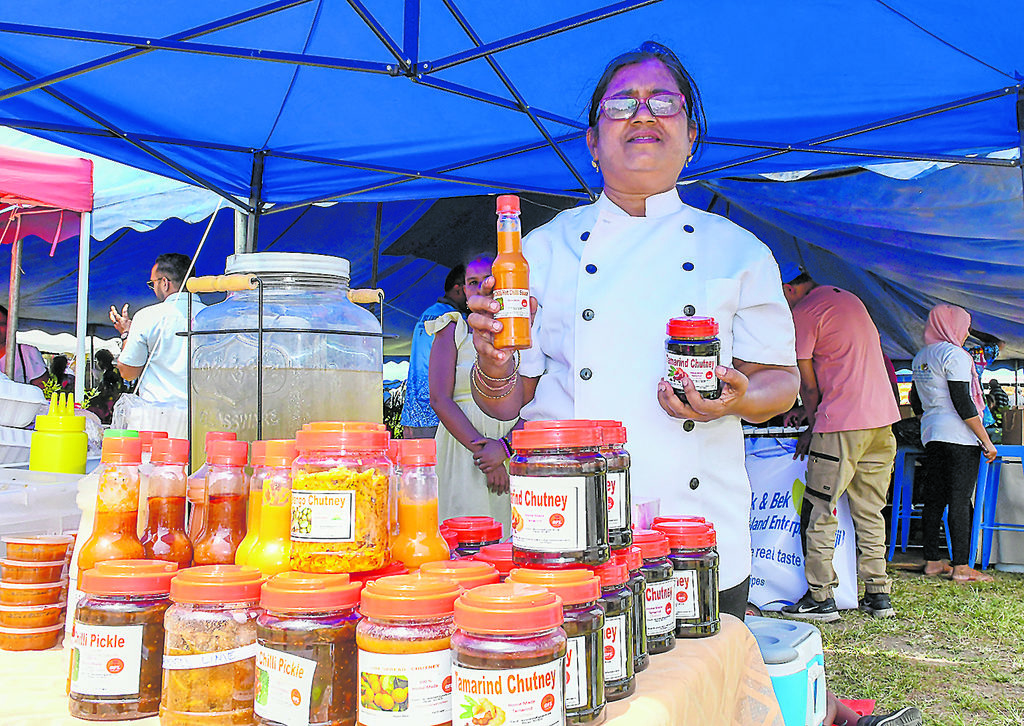
Saleshni Devi at her stall during the National Agriculture Show at Koroivolu Park, Nadi. Picture: BALJEET SINGH
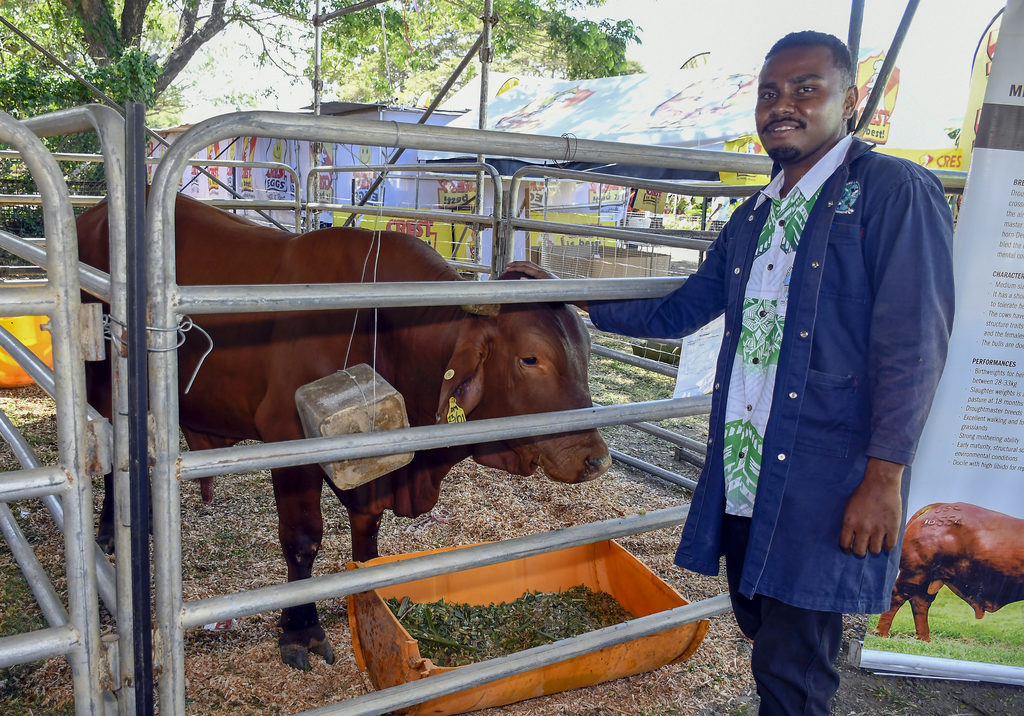
Tevita Tuivunilagi shows a drought master bull during the National Agriculture Show at Koroivolu Park, Nadi.
Picture: BALJEET SINGH
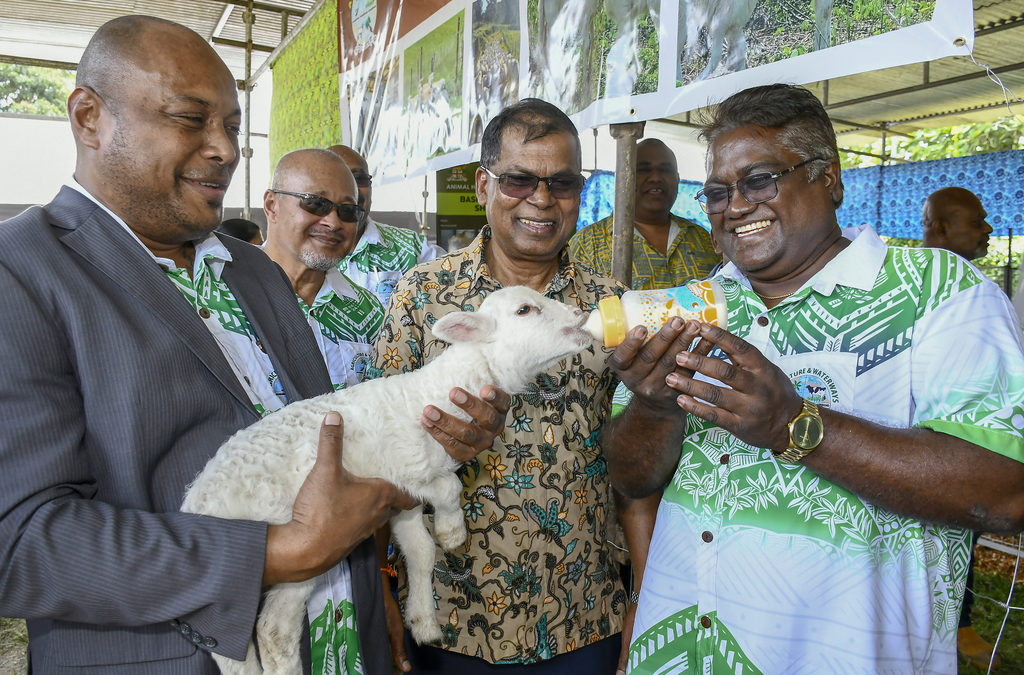
Acting PM and Minister for Finance Biman Prasad (middle) looks on as Deputy Secretary for Agricultural Operations Tekini Nakidakida (left) and Director Animal Health & Production Avinesh Dayal feed a lamb during a tour around the booth at the National Agriculture Show at Koroivolu park, Nadi. Picture: BALJEET SINGH
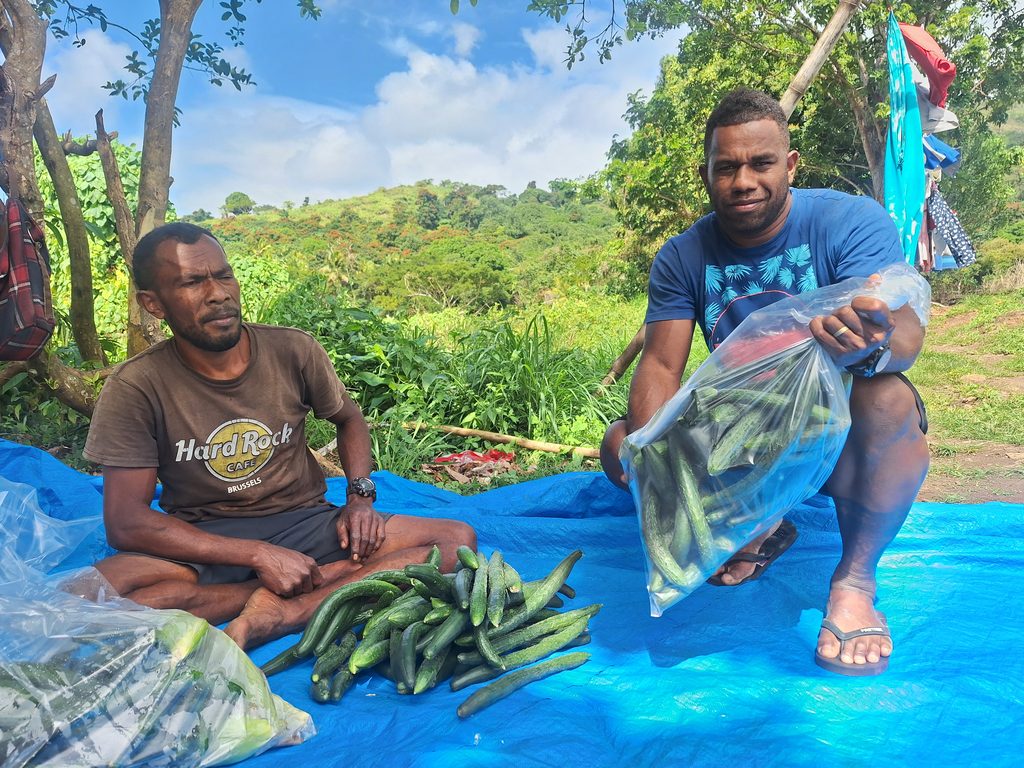
Agro-tourism is one of the fastest-growing segments of global tourism.
Picture: ALIFERETI SAKIASI
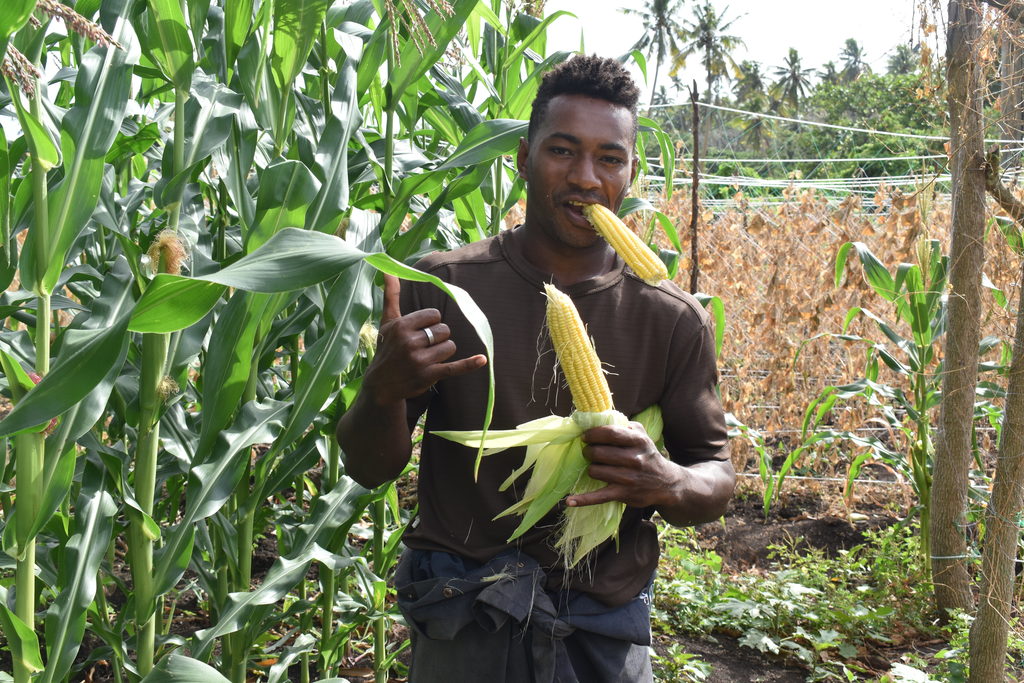
By prioritising local production of essential items, Fiji can significantly enhance its economy and provide fresher options to its thriving tourism sector. Picture: ALIFERETI SAKIASI
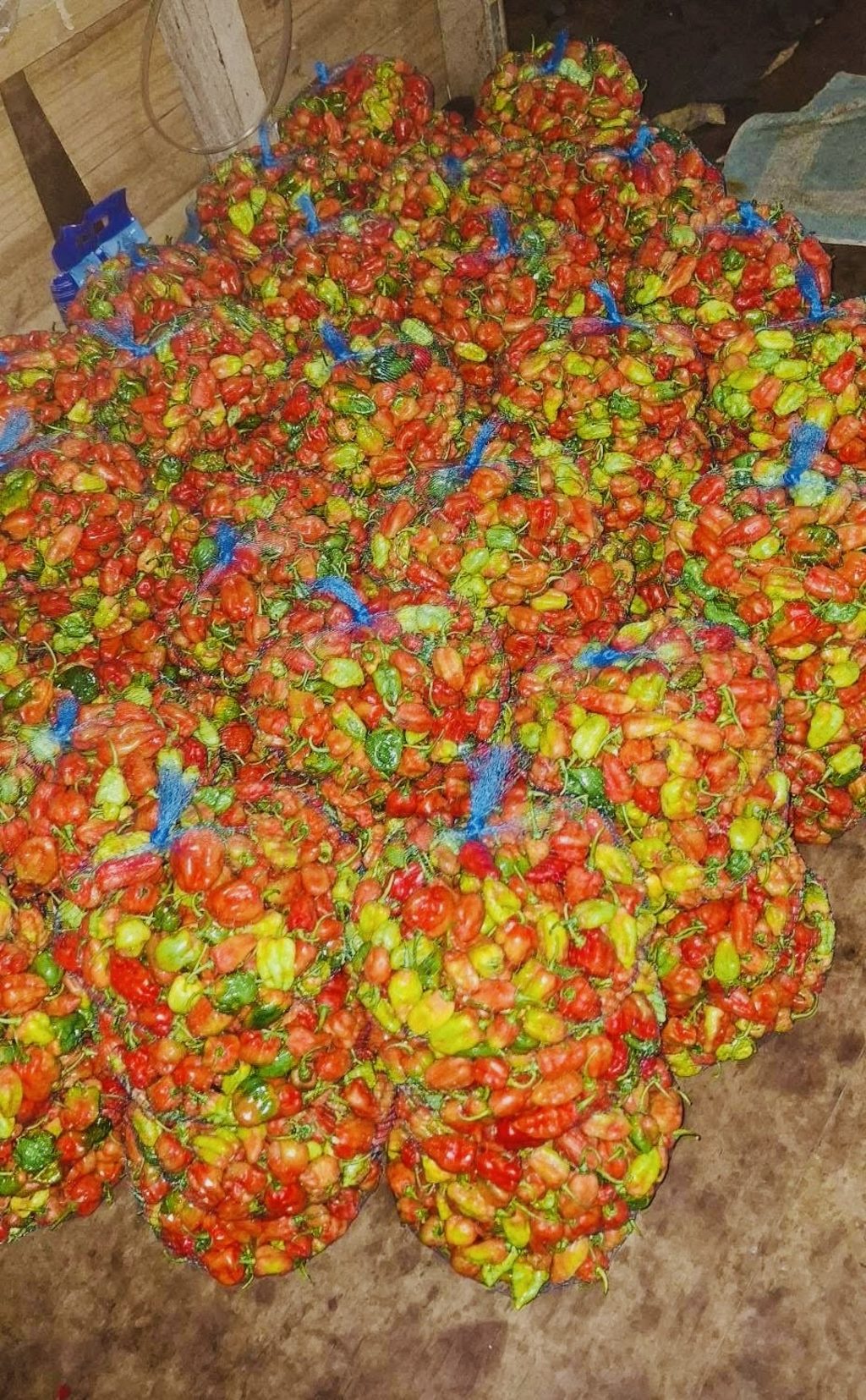
Chilies from a local farm. Picture: YAUKAWA CLUSTER FARMERS
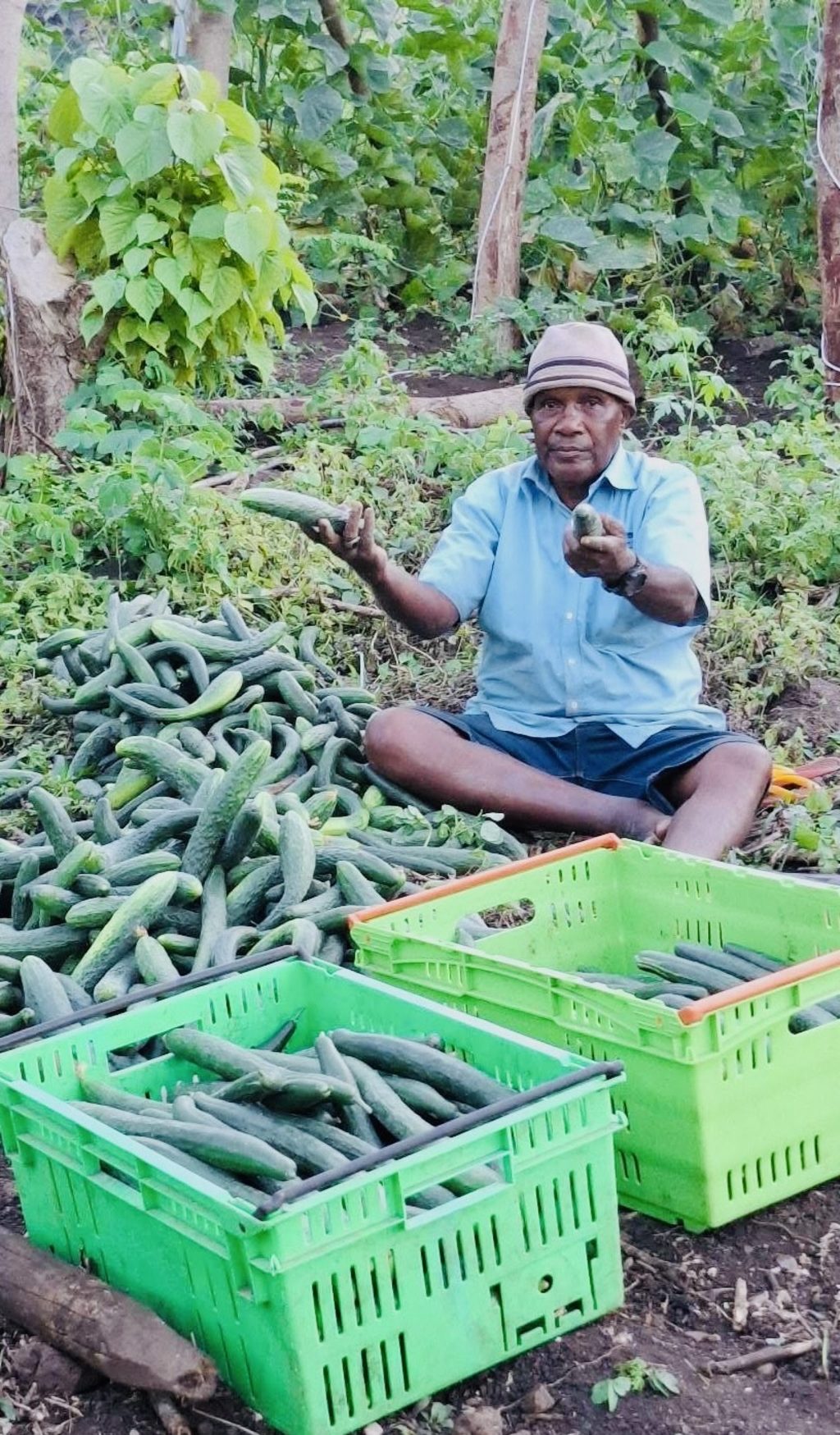
A local farmer with fresh cucumbers. Picture: YAUKAWA CLUSTER FARMERS

